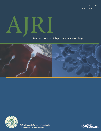Candidate Biomarkers for Acute Rejection of Pregnancy After in-utero Cell-Based Therapy in Pre-Immune Embryos via Ultrasound-Guided Celocentesis
Abstract
Problem
A maternal serum biomarker profile analysis was performed to determine potential indicators of acute rejection of pregnancy following in-utero cell-based treatments in pre-immune embryos.
Method of study
We used an established non-human primate model for in-utero stem cell therapy at 38–42 days from fertilization. The maternal serum concentrations of nine candidate biomarkers for acute rejection of pregnancy were determined before and after the injection of different cocktails of human umbilical cord blood stem cells into the gestational sac. All animals were then followed until delivery.
Results
Twenty-four hours after celocentesis, two of the animals aborted. These two animals received a cocktail of haemopoietic stem cells with the highest concentration of human CD3+ cells and showed a twofold increase in maternal serum IL-6 and a threefold increase in prolactin after the procedure. The remaining six animals delivered at term live and normal newborns and only demonstrated an increase in prolactin after the celocentesis procedure.
Conclusion
IL-6 and prolactin are master immunoregulators with pleiotropic biological functions that have different maternal serum concentrations depending on pregnancy outcome. These findings suggest that increases in maternal serum prolactin and IL-6 concentration may be associated with acute rejection of pregnancy after in-utero stem cell therapy.




